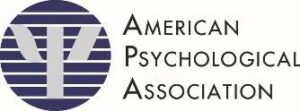
Advanced ACT
Shaping Psychological Flexibility on the Fly
Growing as a practitioner is not an automatic process.
Counter to what one might expect, studies have shown that practitioner experience and time in the field alone do not determine better client outcomes.
Real, meaningful growth is about more than just learning new theories and interventions. It requires adapting in response to what you’ve learned through regular feedback.
A chef, for instance, may spend years learning and practicing their craft. But if they never taste their food or hear reactions from diners, they will never improve.
For mental health practitioners, the same principle applies:
While it is very important to expand the clinical “toolkit” through training on skills and theory, it’s also important to learn how to integrate feedback in a functional way so that you can continuously adapt and improve.
This course is built with just that sort of training in mind.
Designed for practitioners who utilize acceptance and commitment therapy (ACT) in their practice, this live online course aims to deepen, broaden, and sharpen your clinical skills in ACT.
Peer-Reviewed Trainer, Lou Lasprugato, will facilitate a collaborative and supportive training forum that focuses on self-assessment, deliberate practice, and functional feedback.
Through in-depth instruction, you’ll work with process-based functional analysis and contextual behavioral interventions that shape psychological flexibility while incorporating principles from functional analytic psychotherapy (FAP), clinically-applied relational frame theory (RFT), and evolutionary science to enhance your clinical repertoire.
You’ll learn to gauge your clinical development with the ACT-FM (Fidelity Measure), which assesses competency in four key clinical domains: therapeutic stance, openness, awareness, and engagement.
Each session will include experiential breakouts guided by both an overarching objective and your own desired targets for improvement. You’ll have ample opportunities (multiple exemplars) to learn through observation, practice, and feedback in a reinforcing, team-based environment that explores the effectiveness of interventions as well as missed opportunities.
You’ll also learn practical methods for utilizing both observed and direct feedback from clients, equipping you to constantly improve within your own practice.
Through eight interactive sessions you will:
- Become more adept at detecting subtle shifts in behavior under aversive (inflexible) versus appetitive (flexible) control.
- Utilize on-the-fly functional assessment across six psychological dimensions to more precisely target processes in-the-moment.
- Practice shaping psychological flexibility through modeling, evoking, and reinforcing behavior.
- Gauge your clinical development and effectiveness with the ACT-FM (Fidelity Measure) and ACT-SQ (Session Questionnaire), respectively.
- Identify personal consistencies and inconsistencies so you can focus on improving the specific skills most relevant to you.
- Broaden and enhance your ACT repertoire with key evolutionary processes.
Join us online and learn how a feedback-enhanced approach can help you confidently take on the most challenging aspects of your ACT work, and cultivate meaningful, ongoing growth in your practice.
This training is worth 16 CE credit hours if attended live. While we can only provide CE to those who are present – i.e. logged in – for all live presentation(s), Praxis webinars are recorded for later viewing. Registrants may then access these recordings at any time for up to nine months from the conclusion of the training to which they pertain.
Prior to registering, please review speaker-planner conflict of interest disclosures and complete CE information.
Session 1 | April 4, 2024, 1:00 p.m.–3:00 p.m. EDT
- Deliberate Practice / Aversive vs Appetitive Control
Session 2 | April 11, 2024, 1:00 p.m.–3:00 p.m. EDT
- Process-Based Functional Assessment / Flexibility Across Dimensions
Session 3 | April 18, 2024, 1:00 p.m.–3:00 p.m. EDT
- Shaping Behavior / Shaping Psychological Flexibility
Session 4 | April 25, 2024, 1:00 p.m.–3:00 p.m. EDT
- Therapeutic Relationship / ACT Therapeutic Stance
Session 5 | May 2, 2024, 1:00 p.m.–3:00 p.m. EDT
- Relational Variation / Openness: Defusion and Acceptance
Session 6 | May 9, 2024, 1:00 p.m.–3:00 p.m. EDT
- Context Sensitivity / Awareness: Present Moment and Self-As-Context
Session 7 | May 16, 2024, 1:00 p.m.–3:00 p.m. EDT
- Selection and Retention / Engagement: Values and Committed Action
Session 8 | May 23, 2024, 1:00 p.m.–3:00 p.m. EDT
- Clinical Effectiveness / Clinical Flexibility
Participants will be able to:
- Describe ways to enhance clinical competency through self-assessment and purposeful practice
- Demonstrate how to deliberately make use of functional feedback to sharpen clinical skills
- Detect in-the-moment shifts in psychological flexibility as behavior under aversive versus appetitive control
- Discuss how to perform an on-the-fly functional assessment across six psychological dimensions
- Demonstrate how to shape psychological flexibility through modeling, evoking, and reinforcing core processes
- Identify the qualities of an ACT-consistent therapeutic stance that naturally foster a strong working alliance
- Discuss how to apply fundamental principles from contextual behavioral and evolutionary sciences to increase precision, scope, and depth of therapeutic interventions
- Discuss how to promote adaptation through variation, selection, and retention of new behaviors
- Identify how to increase proficiency in working with the three ACT pillars of openness, awareness, and engagement
- Discuss functionality and flexibility of process-based interventions through validated measures and innovative practices
Please review complete CE and conflict-of-interest disclosure information prior to registering. This live online course is sponsored by Praxis Continuing Education and Training and is approved for 16 CE Hours by the following listed below. There was no commercial support for this activity. None of the planners or presenters for this educational activity have relevant financial relationship(s) to disclose with ineligible companies whose primary business is producing, marketing, selling, re-selling, or distributing healthcare products used by or on patients.
Praxis CET maintains responsibility for the program with the CE approvals outlined below:
 Joint Accreditation: In support of improving patient care, Praxis Continuing Education and Training, Inc is jointly accredited by the Accreditation Council for Continuing Medical Education (ACCME), the Accreditation Council for Pharmacy Education (ACPE), and the American Nurses Credentialing Center (ANCC), to provide continuing education for the healthcare team.
Joint Accreditation: In support of improving patient care, Praxis Continuing Education and Training, Inc is jointly accredited by the Accreditation Council for Continuing Medical Education (ACCME), the Accreditation Council for Pharmacy Education (ACPE), and the American Nurses Credentialing Center (ANCC), to provide continuing education for the healthcare team.
 IPCE: This activity was planned by and for the healthcare team, and learners will receive 12 Interprofessional Continuing Education (IPCE) credit for learning and change.
IPCE: This activity was planned by and for the healthcare team, and learners will receive 12 Interprofessional Continuing Education (IPCE) credit for learning and change.
Nursing: Praxis Continuing Education and Training, Inc designates this activity for a maximum of 16 ANCC contact hours.
Physicians: Praxis Continuing Education and Training, Inc designates this live activity for a maximum of 16 AMA PRA Category 1 Credits™. Physicians should claim only the credit commensurate with the extent of their participation in the activity.
 Psychologists: Continuing Education (CE) credits for psychologists are provided through the co-sponsorship of the American Psychological Association (APA) Office of Continuing Education in Psychology (CEP). The APA CEP Office maintains responsibly for the content of the programs.
Psychologists: Continuing Education (CE) credits for psychologists are provided through the co-sponsorship of the American Psychological Association (APA) Office of Continuing Education in Psychology (CEP). The APA CEP Office maintains responsibly for the content of the programs.
Social Workers: As a Jointly Accredited Organization, Praxis Continuing Education and Training, Inc. is approved to offer social work continuing education by the Association of Social Work Boards (ASWB) Approved Continuing Education (ACE) program. Organizations, not individual courses, are approved under this program. Regulatory boards are the final authority on courses accepted for continuing education credit. Social workers completing this course receive 16 clinical continuing education credits.
Drug and Alcohol Counselors: This course has been approved by Praxis Continuing Education and Training, Inc, as a NAADAC Approved Education Provider, for 16 CE hours. NAADAC Provider #165310, Praxis Continuing Education and Training, Inc, is responsible for all aspects of its programming.
 National Counselors: Praxis Continuing Education and Training, Inc. has been approved by NBCC as an Approved Continuing Education Provider, ACEP No. 6759. Programs that do not qualify for NBCC credit are clearly identified. Praxis Continuing Education and Training, Inc. is solely responsible for all aspects of the programs.
National Counselors: Praxis Continuing Education and Training, Inc. has been approved by NBCC as an Approved Continuing Education Provider, ACEP No. 6759. Programs that do not qualify for NBCC credit are clearly identified. Praxis Continuing Education and Training, Inc. is solely responsible for all aspects of the programs.
NY Social Workers: Praxis Continuing Education and Training, Inc is recognized by the New York State Education Department’s State Board for Social Work as an approved provider of continuing education for licensed social workers #SW-0467
NY Counselors: Praxis Continuing Education and Training, Inc. is recognized by the New York State Education Department’s State Board for Mental Health Practitioners as an approved provider of continuing education for licensed mental health counselors. #MHC-0198.
NY Psychologists: Praxis Continuing Education and Training, Inc. is recognized by the New York State Education Department’s State Board for Psychology as an approved provider of continuing education for licensed psychologists #PSY-0002.
NOTE: Many state boards accept offerings accredited by national or other state organizations. If your state is not listed, please check with your professional licensing board to determine whether the accreditations listed are accepted.
Luoma, J. B., Hayes, S. C., & Walser, R. D. (2017). Learning ACT: An acceptance & commitment therapy skills-training manual for therapists. New Harbinger Publications.
Strosahl, K. D., Robinson, P. J., & Gustavsson, T. (2012). Brief interventions for radical change: Principles and practice of focused acceptance and commitment therapy. New Harbinger Publications.
Villatte, M., Villatte, J. L., & Hayes, S. C. (2015). Mastering the clinical conversation: Language as intervention. Guilford Publications.
Walser, R. D. (2019). The Heart of ACT: Developing a Flexible, Process-Based, and Client-Centered Practice Using Acceptance and Commitment Therapy. New Harbinger Publications.
Chow, D. L., Miller, S. D., Seidel, J. A., Kane, R. T., Thornton, J. A., & Andrews, W. P. (2015). The role of deliberate practice in the development of highly effective psychotherapists. Psychotherapy, 52(3), 337.
Hayes, S. C., Hofmann, S. G., & Ciarrochi, J. (2020). A process-based approach to psychological diagnosis and treatment: The conceptual and treatment utility of an extended evolutionary meta model. Clinical psychology review, 82, 101908.
Hayes, S. C., Hofmann, S. G., & Stanton, C. E. (2020). Process-based functional analysis can help behavioral science step up to novel challenges: COVID-19 as an example. Journal of contextual behavioral science, 18, 128-145.
Hofmann, S. G., Hayes, S. C., & Lorscheid, D. N. (2021). Learning process-based therapy: A skills training manual for targeting the core processes of psychological change in clinical practice. New Harbinger Publications.
Levin, M. E., Krafft, J., Hicks, E. T., Pierce, B., & Twohig, M. P. (2020). A randomized dismantling trial of the open and engaged components of acceptance and commitment therapy in an online intervention for distressed college students. Behaviour Research and Therapy, 126, 103557.
Walser, R. D., Karlin, B. E., Trockel, M., Mazina, B., & Taylor, C. B. (2013). Training in and implementation of Acceptance and Commitment Therapy for depression in the Veterans Health Administration: Therapist and patient outcomes. Behaviour Research and Therapy, 51(9) 555-563
We understand, sometimes things come up!
Praxis will offer a full refund to registrants of both live and live-online trainings who cancel their registration up to 14 days before the course or workshop start date, minus an administrative processing fee of $30 for a 2-day workshop or online course, and a $50 fee for a 4-day workshop. If cancelled within 14 days, no refund will be issued, however, a credit for the same amount will be applied toward another learning product, which expires within 1 year. Please contact us at events@praxiscet.com to cancel a registration.


